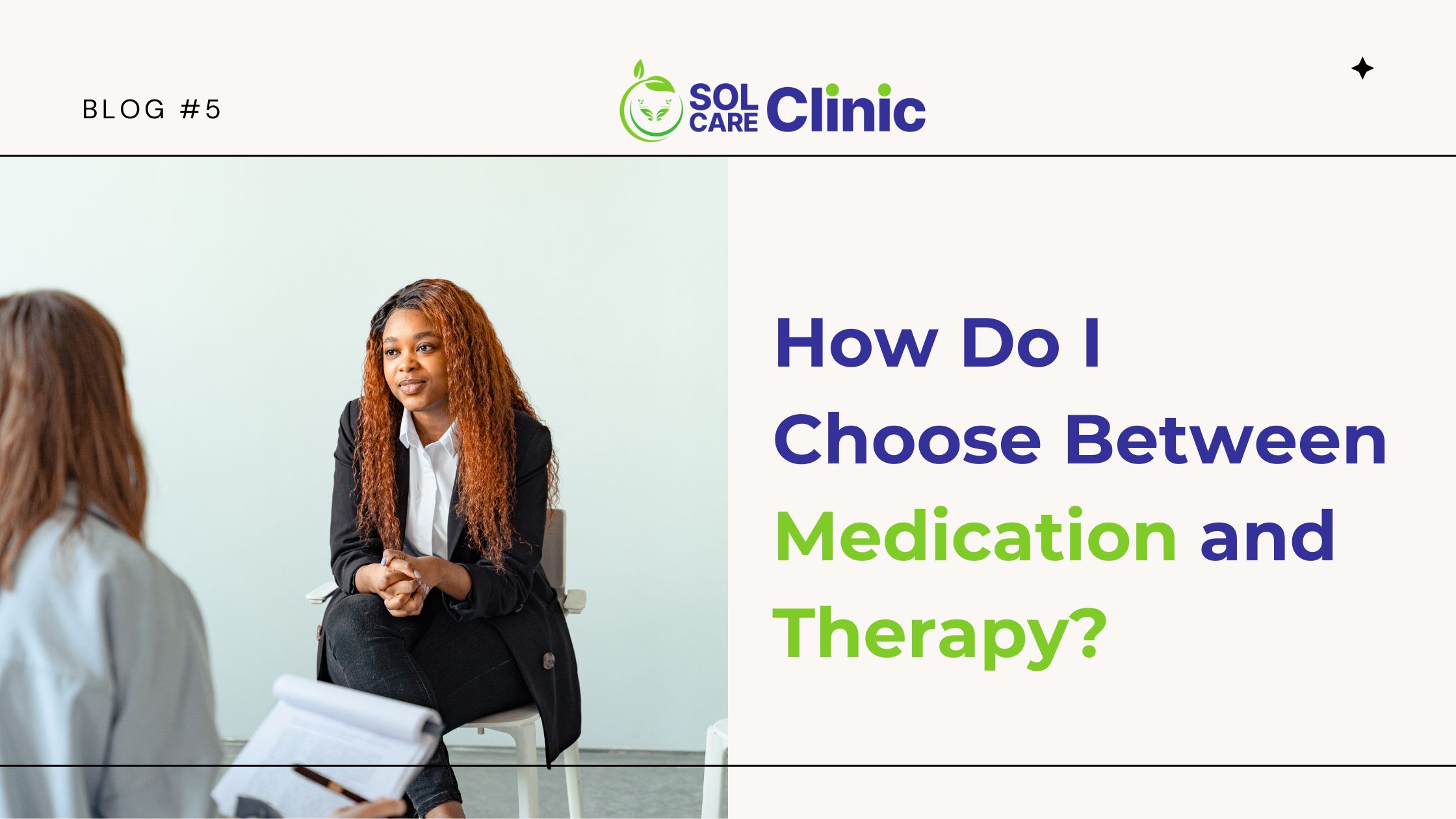Choosing between medication and therapy can be a hard decision. With so many options, it’s easy to feel confused.
Did you know that nearly 1 in 5 adults in the U.S. have mental health issues each year? This shows how important it is to find the right treatment. Whether you have anxiety, depression, or another mental health problem, deciding between medication and therapy is important for your health.
Studies show that both medication and therapy can help. But what works best often depends on your needs and situation. Medication can give quick relief from symptoms, which is very helpful for severe cases. Therapy, on the other hand, helps you learn long-term coping skills and deals with the root causes of your problems. Knowing the pros and cons of each option can help you make the best choice.
Understanding Medication and Therapy
Before diving into the decision-making process, it’s crucial to understand the fundamental differences between medication and therapy.
What is medication management in psychiatry?
Medication, often prescribed by psychiatrists or primary care physicians, involves the use of pharmaceutical drugs to manage mental health symptoms. These medications can target various conditions, such as depression, anxiety, bipolar disorder, and schizophrenia. They work by altering brain chemistry, helping to alleviate symptoms and improve overall functioning.
What is therapy in psychiatry?
Therapy, also known as counseling or psychotherapy, involves meeting with a trained mental health professional to explore thoughts, emotions, and behaviors. Through various therapeutic techniques, such as cognitive-behavioral therapy (CBT), dialectical behavior therapy (DBT), or psychodynamic therapy, individuals can gain insight, develop coping skills, and work through underlying issues contributing to their mental health challenges.
Factors to consider before choosing between medication and therapy
-
Diagnosis and symptoms
The nature and severity of your symptoms, as well as your diagnosis, play a significant role in determining whether medication, therapy or a combination of both is the most appropriate course of action.
-
Severe symptoms
For individuals experiencing severe symptoms that significantly impair daily functioning or pose a risk to themselves or others, medication may offer rapid relief and stabilization.
-
Mild to moderate symptoms
If your symptoms are mild to moderate and you can function relatively well in your daily life, therapy alone may be sufficient in addressing your concerns.
-
Personal preferences
Your preferences and comfort level with different treatment modalities are essential factors to consider. Some individuals may feel more comfortable talking through their issues in therapy, while others may prefer the tangible relief provided by medication.
-
Treatment goals
Consider your treatment goals and what you hope to achieve through medication or therapy. Are you seeking symptom relief, long-term coping skills, or a combination of both? Communicating these goals with your mental health provider can guide treatment decisions.
-
Potential side effects
It’s crucial to weigh the potential side effects associated with medication against the benefits they may offer. Some medications may cause unwanted side effects, such as weight gain, sexual dysfunction, or fatigue, which can impact your quality of life.
-
Cost and accessibility
Consider the cost and accessibility of both medication and therapy. While some individuals may have insurance coverage for both, others may face barriers to accessing affordable mental health care.
Making an Informed decision
Choosing between medication and therapy is not a one-size-fits-all decision. It requires careful consideration of your individual needs, preferences, and circumstances. Here are some steps to help you make an informed decision:
- Consult a Mental Health Professional: Schedule an appointment with a psychiatrist, psychologist, or therapist to discuss your concerns and explore treatment options.
- Ask Questions: Don’t hesitate to ask about the potential benefits, risks, and alternatives to medication and therapy.
- Consider a Combination Approach: In some cases, a combination of medication and therapy may be the most effective treatment strategy.
- Monitor Progress: Track your symptoms and how they respond to treatment, and communicate any concerns or changes with your mental health provider.
- Adjust as Needed: Be open to adjusting your treatment plan based on your progress and evolving needs.
Conclusion
Choosing between medication and therapy is a deeply personal decision that should be made in collaboration with a qualified mental health professional. By considering factors such as diagnosis, personal preferences, treatment goals, potential side effects, and accessibility, you can make an informed choice that supports your mental health and well-being.
FAQs
-
Is it possible to undergo therapy while taking medication?
Yes, many individuals engage in therapy while also taking medication. This combination approach can provide comprehensive support for managing mental health concerns.
-
How long does it take for medication or therapy to start working?
The timeline for experiencing benefits from medication or therapy varies from person to person. Some individuals may notice improvements within a few weeks, while others may require several months of treatment.
-
What if I’m hesitant to try medication?
It’s understandable to feel hesitant about taking medication. Discuss your concerns with your mental health provider, who can address any questions or fears you may have and explore alternative treatment options.
-
Can therapy alone be effective for treating mental health conditions?
Yes, therapy alone can be highly effective for treating a wide range of mental health conditions, particularly when tailored to the individual’s needs and goals.
-
What if I don’t have insurance coverage for medication or therapy?
If you don’t have insurance coverage for medication or therapy, community resources, sliding scale fees, or online therapy options may be available to help make treatment more accessible.





